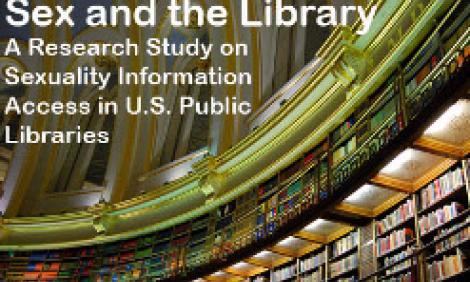Feminist talk
Why we should get over facebook
Social networking sites and privacy formed the main topics in two sessions Maya attended - but she found that the discussions were not grounded in research, that users were absent from the debates and tired assumptions dominated the rooms. What's needed, she argues, are more workable proposals that take into account a variety of research and based on how people actually use social networking…
Publication
Transcript of the 'Sexual rights, openness and regulatory systems' workshop @ IGF, Lithuania, 2010
The transcript of the 'Sexual rights, openness and regulatory systems' workshop co-organized by APC WNSP, Centre for Internet and Society and Alternative Law Forum at the Internet Governance Forum (IGF) in Vilnius, Lithuania on September 14 2010. The workshop presented opinions from various stakeholders on the competing rights and interests on the topic of sexual rights and openness. It…
In depth
Internet Governance Issues on Sexuality and Women's Rights
The Internet Governance Forum (IGF) has been a challenging space for both women's rights advocates and for broader constituencies engaged in advocacy for gender equality and sexuality related rights. In the fifth and final year of its mandate, women's rights are still being dwarfed as a critical issue to be debated in this arena, while sexuality issues, although present, are not seen as a matter…
Feminist talk
GenderIT.org's team @ Internet Governance Forum 2010, Vilnius
What is the role of the internet in defending and realising women's rights and sexual rights? What are our positions as women's rights and sexual rights advocates on how the internet should be governed? From 14-17 September, the GenderIT.org team had been assisting at the Fifth Internet Governance Forum in Vilnius, Lithuania. The GenderIT Feminist Talk contributors and tweeters at the fifth IGF…
Publication
Philippines: Violence against women and ICT
Jessica Umanos Sotos explores why specific law is needed in the Philippines to prosecute perpetrators of violence against women through the use of ICTs or cyberspace. She argues that national ICT institutions and private companies’ policies cannot remain blind to the violations to women’s rights perpetuated via ICTs in the context of the violation of privacy rights through the illicit production…
Feminist talk
Gender divide/gap in Pan-European Dialogue on Internet Governance
Valentina Pellizzer, OneWorld Platform for SouthEast Europe (owpsee) executive directress, participated in this year's EuroDIG – Pan-European Dialogue on Internet Governance, and has several objections to the very visible gender gap in terms of women's participation at the event, and in the IT sector in general. Her commentary was originally written for the Diplo Internet Governance Community…
In depth
Internet regulation and the Brazilian EroTICs context
Authors Sonia Corrêa, Marina Maria and Jandira Queiroz document how gender and sexuality have been at the heart of internet regulation debates in Brazil. However, this centrality does not necessarily translate to the discourses, analysis and the political claims of social actors involved in sexual politics, on the one hand, and digital politics, on the other. In the authors' view, there is no…
In depth
Who’s Afraid of the Big Bad Internet?
"Clearly, one cannot speak of sexual rights activism in Lebanon without speaking at length about internet usage, as both are tied together at levels from personal identity and relationships to political activism and mobilization," claims Nadine Moawad, the APC's EroTICs project partner. In this article, she assesses the role of the internet in the rise of sexual rights activism in Lebanon, and…
In depth
‘Does your mother know?’ Agency, risk and morality in the online lives of young women in Mumbai
Manjima Bhattacharjya and Maya Ganesh, the India partner of the APC's EroTICs Project, open their input with the evocative lyrics of a Swedish pop group ABBA: “And I can chat with you baby / Flirt a little, maybe / But does your mother know that you’re out ?” This article is about middle-class women digital natives in Mumbai, the city with the highest internet use in India, and the initial…

In depth
What Is 'Harmful to Minors'? US EroTICs Partner Investigates Library Search Filters
In this article, Kevicha Echols and Melissa Ditmore from Sex Work Awareness (SWA), researchers for the APC's EroTICs project, investigate the use of filters on public library computers with internet access. People in the United States (US) enjoy a great deal of access to information in print and online media due to the first amendment of the US constitution, which guarantees freedom of speech,…




